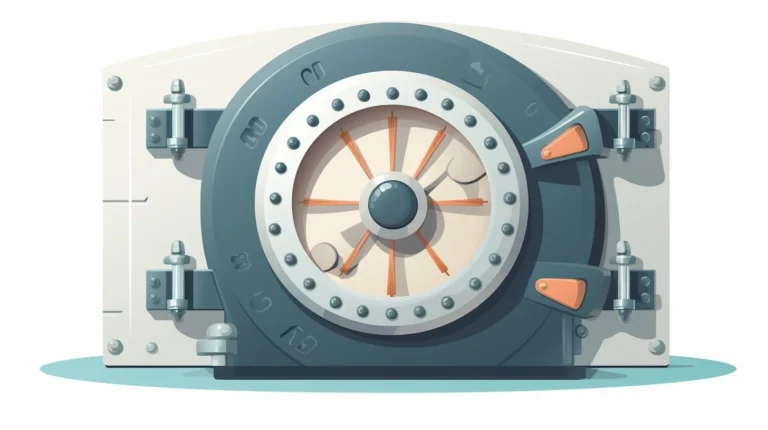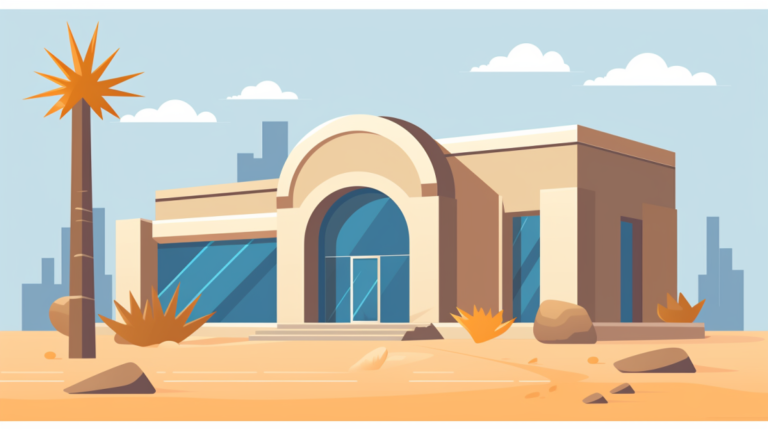How to Open a Business Banking Account

Starting your own business can often feel like a brave new adventure, and deciding on the right business banking account to opt for? Yes, that sure could seem like an intricate puzzle.
But here’s some good news – you’re not alone in these uncharted waters. The U.S. Small Business Administration strongly recommends maintaining separate banking specifics for your venture – a solid foundation stone towards orderly record keeping! Striving to simplify such complexities is exactly what we are all about; In this guide, we will patiently walk through every crucial aspect – from selecting a bank resonating with your unique requirements to decoding the sign-up undertakings – making it as breezy as possible.
So buckle up pals, let’s unravel the mystery behind business banking together!
Key Takeaways
- A business banking account helps keep your company money and private cash apart.
- Know what type of account you need, like savings or checking. Some help in payments and others grow your funds over time.
- Picking the right bank matters a lot. Check fees, bonuses, rules on keeping accounts and cool features they offer.
- Before opening an account, gather all needed papers like IDs for yourself and the business. Also have your EIN ready with some starting cash.
- Once done picking a bank and gathering papers, you can start making an account either online or by going to the bank itself!
- Balance personal costs with business expenses in separate accounts for simpler handling at tax time.
Why Open a Business Banking Account?

Opening a business banking account boosts your professionalism, offers purchase protection to your customers, gives you access to varied credit options and shields your personal assets through limited liability protection.
Limited Liability Protection
Having a business bank account gives you limited liability protection. This means your personal stuff is safe if there are problems with the company’s money. By keeping business and personal cash apart, you don’t have to worry about loans or dues of the company falling onto you.
It draws a clear line between what belongs to you and what belongs to the business. This way, it makes sure that your house, car, and other things stay yours even if the company goes through hard times.
Purchase Protection for Customers
Banks give purchase protection to keep your money safe. If someone uses your account without asking, you can get your money back. This is called a refund for unauthorized charges. It’s good to know that if one buys a fake or faulty item with the account, purchase protection steps in.
You must tell the bank quickly about any wrong charges or fraud on your account. For this, some banks may ask for extra papers that show proof of the false transaction. This helps them see it wasn’t you who made the order but someone else instead.
Professionalism
Having a business banking account pumps up your game in the market. It doesn’t just mean you’re serious about what you do, it gives others that same feeling too. Customers and partners will see you as more trustworthy and reliable.
Your professional image improves when your business has its own bank account. That’s vital for winning over great clients! With a bank like U.S. Bank on your side, professionalism becomes part of your brand’s power.
Credit Options
You can get credit options with a business bank account. This means you have a way to borrow money when needed. Banks like U.S. Bank and PNC offer services for this. You can find lines of credit, personal loans, or even business credit cards! These choices are good for handling big costs in your company or filling gaps during slow times.
The best part? They give you chances to build your business credit score over time!
Different Types of Business Bank Accounts

Understanding the various business bank accounts available – checking, savings, merchant services and credit card processing is crucial. Each one serves a unique purpose tailored to your business needs so be sure to stick with us as we delve deeper into what each account offers!
Checking Accounts
A checking account is like a tool box for your business. It keeps your money safe and helps you pay bills. U.S. Bank has great options for small businesses, including the Silver Business Checking account with no monthly fees.
This account gives you 125 free deals each month.
There are more accounts too, like the Gold and Platinum plans. They cost some money each month but provide more transactions free of charge. For special needs, U.S Bank offers Premium or Nonprofit checking accounts to help out lots of different businesses.
Savings Accounts
Savings accounts can be a smart choice for businesses, too. They are like piggy banks you can put your money in when not using it. Over time, this money earns interest and grows on its own.
It’s great to have around if unexpected business costs pop up or for buying big things later on without dipping into the day-to-day cash. Plus, having one shows that your business is aiming long-term and safely managing its funds.
Merchant Services Accounts
A merchant services account is a must-have for businesses. This account lets you take card payments from your customers. It works like a link between your business and credit card firms.
When a customer pays with their card, the money goes into the merchant account first. Then it moves to your business bank account. Any kind of business can have this, big or small! And guess what? U.S Bank provides this service as well as PNC, who also give extra solutions for accepting payments! Now isn’t that cool?.
Credit Card Processing Accounts
This is a type of business bank account. U.S. Bank offers it as part of their services. It lets your business take credit card payments from customers. This can happen in a store or online through digital channels.
So, even if you run an online store from the side, this account can help you. To open one, be sure to have all the right documents ready such as Employer Identification Number (EIN) and articles of Incorporation or Charter.
Key Factors to Consider When Choosing a Bank

When choosing a bank for your business, scrutinize potential fees, consider possible sign-up bonuses, evaluate account maintenance requirements and ensure their features meet your needs.
Fees
Banks may have fees for business bank accounts. U.S. Bank has different types of checking accounts with varied fees. A Silver Business Checking account does not need a monthly fee.
The Gold Business Checking account at the same bank wants $20 each month, but it can be dropped in some cases. This gold account also asks for an extra 45 cents for each other deal you make after your free ones are gone.
Then there is the Platinum Business Checking Account that requires $30 every month, this too might not be needed sometimes and they will ask 40 cents more after you use up your free deals.
Sign-up Bonuses
Sign-up bonuses grab my attention. Banks often give these as gifts when you open a new account. Bonuses can be different for each bank. I check around and find the best deal before I pick a bank.
Some banks set rules to get the bonus, like having a certain amount of money in your account. This perk helps me save on costs such as fees that come with banking.
Account Maintenance Requirements
You need to take care of your bank account. This is called account maintenance. Some plans might charge fees every month you own the account. Look for a bank that doesn’t have high fees or frequent costs.
The Silver Business Checking at U.S. Bank is free each month! But the Gold and Platinum accounts may cost $20 and $30 each cycle, unless waived off by the bank rules.
So, always pick an easy plan with low overhead charges!
Features
Bank features are important. Good ones can make your job easier. U.S. Bank offers useful tools through their Business Essentials plan. This includes detailed reports to keep track of money.
Another cool feature is the mobile app from U.S. Bank. With it, you have your bank in your pocket! You can look at accounts and move money anytime, anywhere. It’s there for businesses to use when they need it most.
How to Open a Business Bank Account

Opening a business bank account starts with gathering all necessary documentation, such as your U.S. Employer Identification Number (EIN), personal ID documents, and your business license.
You must choose the right type of banking account that suits your small business needs – whether it’s a business checking or savings account. It’s crucial to understand each bank’s fees, sign-up bonuses and maintenance requirements before making a choice.
Once ready, go to the chosen bank either physically or online and complete the application process by providing required details about your company and submit relevant documents along with initial deposit if needed.
Remember to read terms of agreement carefully before signing up! Now you have successfully opened your business bank account—congratulations on this achievement towards professionalizing and protecting your venture!
Identification Documents
You need to show some papers when you open a business bank account. These are called identification documents. They help the bank know who you are. For example, these can be your driver’s license or passport.
This way, the bank knows you’re not lying about who you are. It also keeps bad people from doing wrong things with your business info. Not all banks ask for the same papers though so make sure to check what they need before going!
Business Identification Documents
You need certain papers to open a business bank account. One of them is your tax ID number. This could be your Employer Identification Number (EIN) or Social Security number. For the company, you also need business identification documents.
These papers show what kind of company you own. Is it a sole ownership, LLC, or corporation? The type decides what papers you must submit. Lastly, if you are using a made-up name for your business, an assumed name paper is needed too.
Employer Identification Number (EIN)
You need an Employer Identification Number (EIN) to open a business bank account. An EIN is like the Social Security number for your business. The IRS gives this unique nine-digit code to each business in the U.S.
Getting an EIN is easy and free! Just go online and fill out a form on the IRS website. This number allows the IRS to track all your business dealings, just like they do with your personal actions using your Social Security number.
Business owners must have one if they hire employees or set up their company as a corporation or partnership.
Cash or Initial Deposit
You need cash for your initial deposit. This is how you start your business bank account. The amount depends on the bank you choose. For example, with U.S. Bank’s Silver Business Checking account, there isn’t a set rules on the amount of money to put in when you open it.
But other banks may ask for more or less money to begin with, so always check their needs first before choosing them for your business banking needs.
Tips for Managing Your Business Bank Account

Constructive management of a business bank account requires organized record keeping, transparency in transactions, and clear discernment between personal and professional expenses.
Start exploring these key strategies to optimize your business’s financial health!
Keep Business and Personal Finances Separate
You need a separate bank account for your business. Mixing personal and business money is not good. If you do, it will be hard to track your company’s cash flow. Plus, tax time can get messy if all transactions are together in one account.
So, using different bank accounts makes things easier to handle. Also, the law may require this separation for some kinds of businesses! Both U.S Bank and Small Business Administration stress on keeping these funds apart.
Your business finances should stay tidy with their own place in a distinct account!
Regularly Review Account Activity
Look at your bank account often. U.S. Bank’s online and mobile tools make this easy to do. You can check in any time, from anywhere, using their app or website. This helps you keep track of where your money goes.
Checking the business bank account will help spot any weird things fast. If someone uses your card without you knowing, you’ll see it right away. It could be a small thing or a big mistake on a bill: seeing it early means fewer problems later on!
Understand Your Account Fees
Fees may come with your account. Some banks charge money for some services. For example, you could pay a fee each month to keep the account open. You might also have to pay if you use more free transactions in a month than allowed by your plan.
With U.S Bank’s Silver Checking Account, there are no fees each month and they give you 125 free transactions every month.
Conclusion

Opening a business bank account is simple. You will need the right papers and some money to start. It helps your business grow in many ways. Make sure you pick a good bank.
FAQs
1. What is a Business Banking Account?
A business banking account can be a checking or savings account that lets small businesses manage money, make payments and do other necessary tasks.
2. How to open a Business Checking Account online?
To open an online business checking account, you will need your legal services documents and personal identification documents. You may also have to show proof of your industry expertise.
3. Can I get help for online investing using my business bank account?
Yes, many banks offer automated investor tools as part of their business services package to assist with investment management in line with financial goals.
4. Are there different types of Business Bank Accounts?
Banks usually have different types of accounts like ‘Business Smartly’ checking accounts, safe debit accounts,rollover credit card accounts and more deposit products for separate businesses.
5. Do I pay fees on my U.S Bank Visa delegate Card?
Some fees may apply such as the monthly maintenance fee, but it varies depending upon the type of product and detailed rules given in “Your Deposit Account Agreement.”
6. Is it important to use Zelle within my personal or Small Business Banking App when making transactions?
Zelle can prove very handy for speedy transfers between bank users without any added charges keeping your finances secure under Fraud protection measures provided by most banks today.






